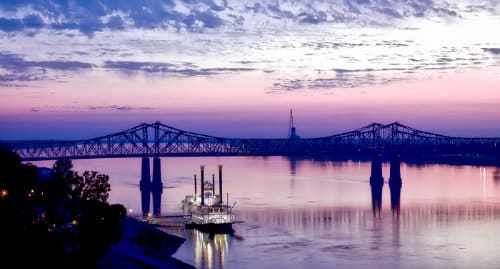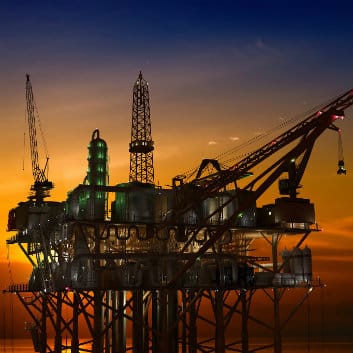After suffering a maritime or offshore injury in Mississippi, workers often come to us with questions like:
Contact us today to learn more about your legal options in a free consultation.
Bordered by the Mississippi River to the West and the Gulf of Mexico to the South, the state of Mississippi is a prime location for various offshore and maritime industries. These industries make up a significant portion of the state’s economy, and thousands of residents work hard every day in these settings to take care of their families and keep the economy running smoothly.
Workers on ships, offshore oil rigs, docks, ports, harbors, and other maritime settings are at a relatively high risk of suffering a serious injury on the job. While certain hazards are inherent risks of the work environment, many of these injuries occur due to some form of negligence, such as a poorly trained co-worker’s mistake, unsafe condition on the ship, or a piece of defective machinery.
Workers who meet the Jones Act definition of a “seaman” may hold their employers liable for workplace negligence. Maritime workers not covered under this act may file a claim under the Longshore and Harbor Workers’ Compensation Act. In either case, seeking compensation is complicated and may require the guidance of an experienced Texas maritime lawyer.

Mississippi has a total of 16 ports situated on the shores of the Mississippi River, Tombigbee and Tennessee River Waterway, and the Gulf of Mexico. These ports generate about $1.4 billion for the local economy and contribute to approximately 34 thousand jobs in the state. Some of the high-traffic ports include:
Port Bienville Industrial Park is located at the southernmost county in Mississippi on the Gulf of Mexico and near the Louisiana border. This park is owned and operated by the Hancock County Development Commission and contains 18 different industries, which handle dry bulk commodities, heavy-lift cargoes, limestone, coal, steel, and other products.
Also located on the Gulf of Mexico, Biloxi Port is operated by the Mississippi Department of Transportation (DOT). These facilities contain two commercial docks, two recreational marinas, and various piers, boat ramps, fishing bridges, and boat launches throughout Biloxi. Cargoes transported through this port primarily include seafood, coal, sand, soil, gravel, rock, stone, and other miscellaneous cargoes.
The Port of Greenville is located on the Mississippi River and is under the authority of the Mississippi DOT’s Office of Intermodal Planning. Facilities include a wharf-type double pier, covered overhead bridge crane, a bridge crane with two hooks and a 30-ton lift capacity, and adjacent dock with a Senbogan 835 crane.
Maritime services at this port include barge loading/unloading, harbor and fleeting services, marine dry-dock and repair, open yard hardstand storage, warehousing, all-weather transloading, and truck scales.
Bulk cargoes that move through this port include fertilizer, wheat, rice, corn, ingredients for grain feed, potash, and scrap.
The Port of Gulfport is located on the Gulf of Mexico and handles container, bulk, and break-bulk cargoes both international and domestic. In total, the port processes an average of 2.2 million tons of cargo. This port is the third largest major container seaport on the Gulf of Mexico and the second largest importer of green fruit in the nation.
Operated by the Jackson County Port Authority Board of Commissioners, this port on the Gulf of Mexico deals in a variety of cargoes and also offers several ship repair facilities for all types of vessels.
The main exports moving through this port include:
The Port of Vicksburg is a major hub of the Mississippi state economy, with 21 businesses and industries employing more than four thousand workers at the port. The port imports and exports between 800 thousand and 900 thousand tons of cargo each year.
If you’ve recently been injured while working in a Mississippi offshore or maritime setting, it’s important to seek the coverage you need and deserve. One of our experienced maritime lawyers can help you navigate the complex system of maritime law and ensure you get the maximum compensation you’re entitled to. To find out more about your options, contact us today for a free consultation.
Continue Reading: Lawyers Representing Injured Alabama Maritime Workers


 info@legalherald.com
info@legalherald.com